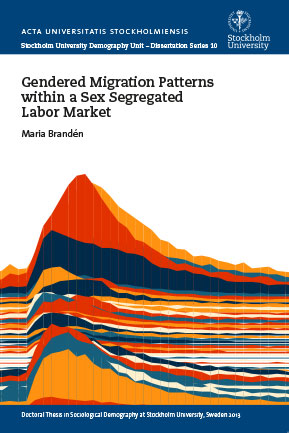Moving to a new place is a major life event that often includes leaving a job, friends, and family behind. The decision to move or not is even more complex for couples than for individuals because two jobs and two social networks must be taken into account. Considerable research has demonstrated that couples’ moves are driven more by the man’s than the woman’s career and that men are more likely than women to gain economically from moving. Such patterns exist even in such relatively egalitarian countries as Sweden.
In her doctoral thesis, Maria Brandén examines gendered migration patterns, with a particular focus on the role of occupational sex differences. The thesis consists of four studies that together cover several dimensions of gender differentials in migration behavior: gendered predictors of family migration, gender differentials in economic outcomes from family migration, and gender differences in moving to form a common household.

